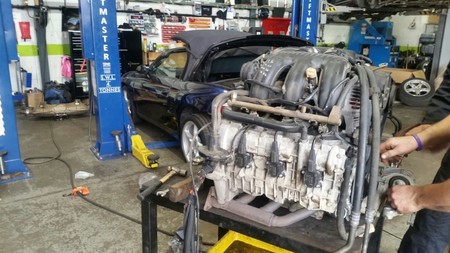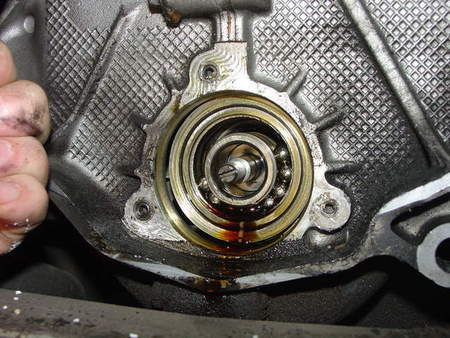Boxster / Cayman

One of the very few downsides of owning a Porsche is the cost of repairs if something major goes wrong. Fortunately, there are steps you can take to protect yourself against the prospect of large repair bills, even after the standard Porsche warranty expires.
You have three main options for cover – a Porsche approved warranty, a third-party used car warranty or a protection plan from an independent Porsche specialist. While both types of warranty are insurance policies with a raft of detailed clauses, a protection plan is a much simpler product that includes maintenance as well as repairs.
Before deciding which type of cover is best for your car, there are some questions you should ask the company selling the policy or plan.

Choosing the right cover will help you to manage the cost of maintaining your Porsche.
Both approved Porsche warranties and aftermarket warranties work in a similar way to standard insurance products. If nothing goes wrong with your car during the cover period, you won’t get anything for your premium. If your vehicle does experience a problem, you may be able to make a claim to have it repaired at the expense of the warranty provider, depending on the terms and conditions of the policy.
One of the major differences between warranties and cover such as the Revolution Porsche Premium Protection Plan (PPP) is that the latter is designed to include the biggest routine maintenance costs, rather than just repairs. A good plan will include your Porsche’s annual service and MOT, together with the labour costs of repairs undertaken during the cover period, so you get something for your money every year.
Aftermarket used car warranty policies are notorious for featuring confusing wording and numerous exclusion clauses that prevent the vehicle owner making a successful claim. A market study by Which? found that the various providers had a host of different exclusions and used a wide variety of terms to describe them.
That can make it very difficult to establish the exact circumstances in which the warranty provider will and won’t authorise and pay for a repair. You should read the policy carefully, including all the small print, and pay very close attention to any ‘wear and tear’ exclusions before making a decision about whether an aftermarket warranty is right for you.
As well as ‘wear and tear’, keep an eye out for ‘betterment’ clauses (which mean you will be expected to pay for any repairs deemed to have increased the value of your car), ‘consequential damage’ exclusions (which may mean that you are covered for a failed part, but not for any damage to the engine that its failure caused) and the total maximum claims value.
Porsche approved warranties are typically easier to understand than aftermarket ones, but you will still need to read the terms thoroughly to make sure you are aware of the ‘wear and tear’ exclusions.
An example from the Official Porsche Approved Warranty
Visual and acoustic concerns, wear and tear are not defects and are therefore excluded from the warranty. Highlighted below are the parts that are typically subject to wear and hence the cost of their replacement is unlikely to be covered by the warranty.
Non-exclusive list of parts can be affected by wear and tear:
The Revolution Porsche PPP is much simpler, as we believe in being straight with our customers. The labour element of any repair undertaken is covered by the plan, even for known issues such as the IMS bearing and RMS, and for common ‘wear and tear’ items such as brakes, clutches and suspension faults. You would pay for any parts used in the repairs, but the cost of a specialist technician to carry out the work is met by the plan.
Of course, there are some exclusions – after all, you wouldn’t expect us to meet the cost of repairing damage from an over-exuberant track day or an accident that is covered by your standard car insurance policy. There is a short, but comprehensive, list of exclusions in the PPP booklet, but if you want clarification about anything to do with the plan, just get in touch.

How old your Porsche is will have an impact on the price of a warranty and the level of cover provided. A Porsche Approved Warranty is very clear on age, stating that any car less than 9 years old and with up to 125,000 miles on the clock is eligible for cover, but the position of aftermarket policies is less simple.
The older your Porsche is, the higher the cost of an aftermarket warranty will be. You may also find that the total claims limit is much lower and that the list of exclusions is longer as the insurers believe the failure rate of expensive parts will be higher. The small print needs detailed scrutiny when looking for a warranty for an older car.
One of the benefits of a protection plan is that the age of the car has no impact on the type of cover given. We accept almost any Porsche on to our PPP, regardless of age, and provide a consistently high level of service to all our customers.
Having your Porsche off the road is a frustrating experience, especially if you can’t work out why what appears to be a relatively simple repair is taking so long. This can be a particular problem with both manufacturer and aftermarket warranties, as the terms of most of them mean work has to be authorised by a warranty engineer before being undertaken – a process that can take days.
With a protection plan from an independent Porsche specialist, there is no warranty engineer and work can be started much more quickly. At Revolution Porsche, we aim to get our PPP customers back on the road as soon as possible and will provide a free courtesy car (subject to availability) if your Porsche is not repaired within 24 hours of it arriving at our workshop.
Porsches are not ordinary cars and should only be maintained and repaired by technicians who have had specialist training and who have access to the right diagnostic tools. With a Porsche Approved Warranty work will be undertaken at a Porsche Centre, but if you have an aftermarket warranty, you may not be able to take your car to a specialist.
The terms of some warranties mean you have to take your car to a certain network of garages, while others will allow you to choose where the work is carried out as long as the labour charge is below a set level. Both scenarios can prevent your car being repaired by a Porsche expert and it is sensible to check this before signing up for a policy.
With the PPP, all work is carried out by our experienced team of Porsche technicians at our Brighouse workshop.
You can find full details about the PPP by clicking here or by contacting us for an informal discussion.